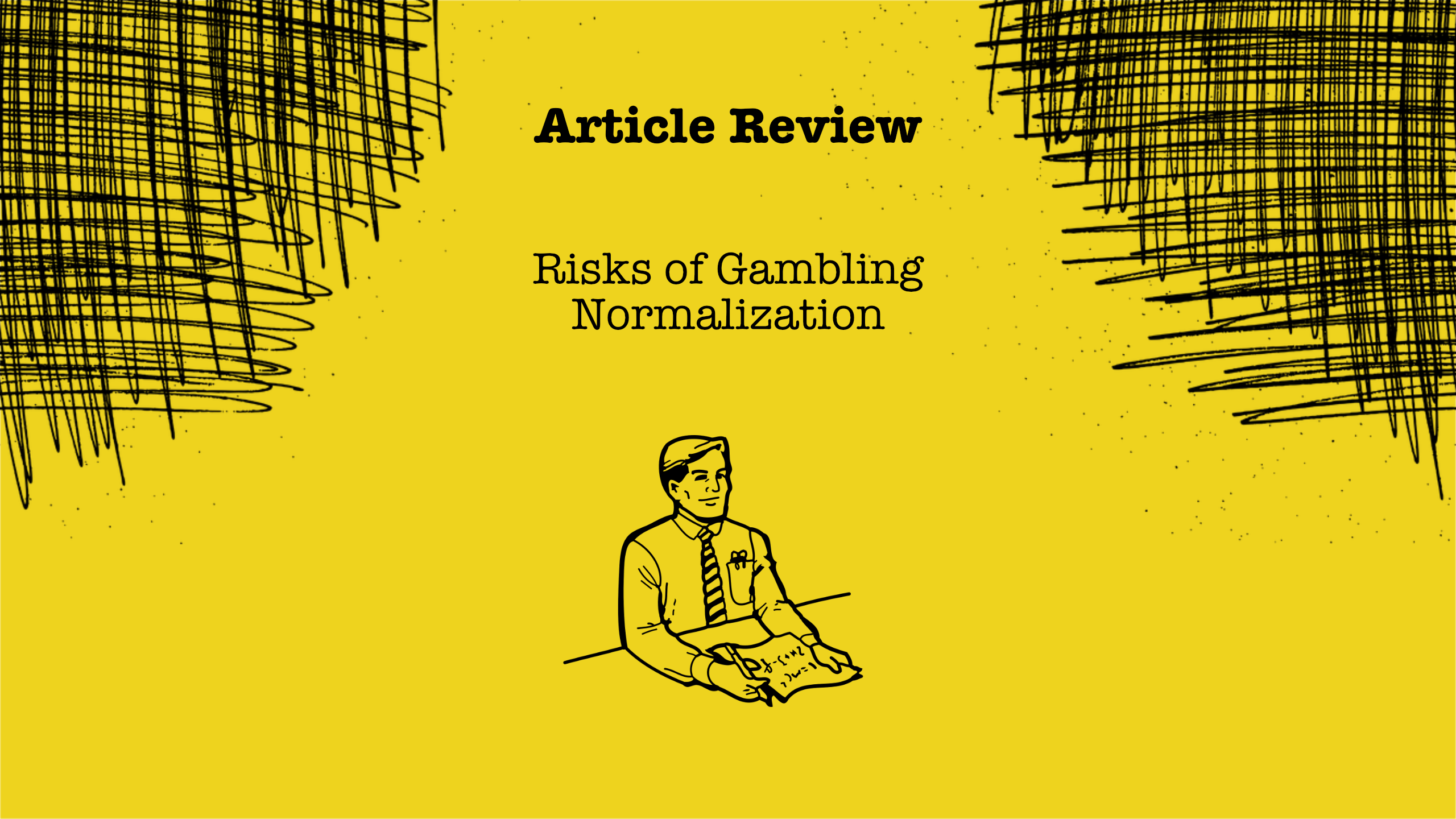Risks of Gambling Normalization
This study discusses the relationship between members/stakeholders of Belgian sports organisations and sports gambling. This text particularly highlights factors that may be linked with higher levels of problem gambling in sports. The study emphasizes the need for gambling regulations and educational measures to denormalize gambling in sports and tackle its associated harms, such as relationship breakdowns, debts, anxiety, depression, and suicide. The text also sheds light on the characteristics of sports bettors in Germany and Australia and identifies socialization mechanisms in sports clubs that contribute to the normalization of gambling. Important to notice the limitation of this study being by its small sample size and possible self-selection bias. Yet, this text provides valuable insights into the normalization of gambling and its potential harm to society.
